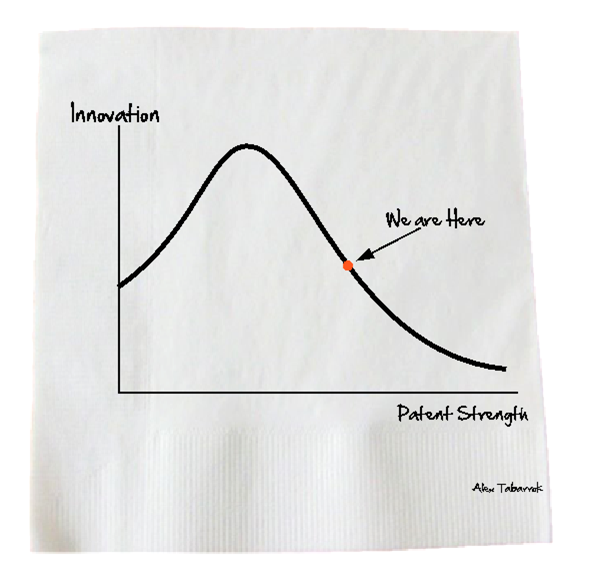Cobbled together from some Facebook posts calling for the Libertarian Party Platform to be amended to include calls to abolish intellectual property law, in particular, patent and copyright:
[Update: Aggression and Property Rights Plank in the Libertarian Party Platform; Colorado IP Socialists Trying to Amend LPCO Platform to Include IP]
[Update: Tom Knapp informed me that this almost happened earlier this year:
the Libertarian Party’s 2020 platform committee recommended the addition of new plank 2.15, “Intellectual Property,” to the platform. The proposed plank read as follows:
“As we oppose all government intervention in marketplaces, we favor the repeal of intellectual property laws. Disputes between inventors, creators, authors, artists, businesses and other such entities should be resolved without government intervention.”
Unfortunately, the 2020 Libertarian National Convention was interrupted/delayed by a full day of mutiny against the party, then voted to adjourn without considering the committee’s recommendations instead of doing its fucking job.
2.XX Intellectual Property
As we oppose all government intervention in marketplaces, we favor the repeal of intellectual property laws. Disputes between inventors, creators, authors, artists, businesses and other such entities should be resolved without government intervention.
The Report provides the reasoning:
Rationale for Proposal 19
No matter what position any person takes on intellectual property, it is nearly universally acknowledged that the government’s handling of this has been stifling and ham-handed. There are better free market solutions that can be allowed to flourish if the government would stay out. The market has already pioneered the way with the creation of items such as creative commons licensing.
This is utterly heroic. I suspect this is the handiwork of Caryn Ann Harlos, the Committed Chair. I sincerely hope that this is taken up again at the next convention.
[Update: See also It’s A Fucking Disgrace that the Libertarian Party Platform Does Not Condemn “Intellectual Property” (Patent and Copyright)]
From Aug. 3, 2018:
As noted recently, I’ve just joined the Libertarian Party, after more than 35 years of being a small-l libertarian. As noted there, my main goal is to persuade the party to adopt a clear platform plank calling for abolition of patent and copyright law. As I have in the past.
Intellectual property law is 100%, clearly and undeniably unlibertarian. Among destructive and evil state policies, it ranks among the worst, which are (in no particular order): 1. war; 2. the Fed/central banking/fiat money; 3. government schools; 4. taxation; 5. the drug war; 6. intellectual property — in particular, the federal patent and copyright laws (see “Where does IP Rank Among the Worst State Laws?”). Now not all libertarians are anarchists, and thus not all agree that war and taxation are always and completely wrong. And not all are Austrians, so some are not completely opposed to central banking. I’m not aware of many libertarian arguments for government schools, and there are just zero arguments for the drug war. Of all the libertarian stances, the drug war is simply not debatable. If there is a litmus test, it is the drug war. All libertarians must be completely and utterly opposed to the inhumane and evil prohibition of drugs. [If idiot Trump had come out for marijuana legalization at the federal level, he might have beaten Biden.]
And patent and copyright law also. There might be some argument for taxation or even war (especially among minarchists), but just as there is no libertarian argument at all for outlawing drugs, there is no argument at all for patent or copyright. They are as blatantly and clearly immoral and unlibertarian as the drug war is. And in one respect IP law is even worse than other state laws and policies: unlike war, taxation, drug laws, and so on, intellectual property pretends to be a type of “property right”, and thus is far more insidious. [continue reading…]





